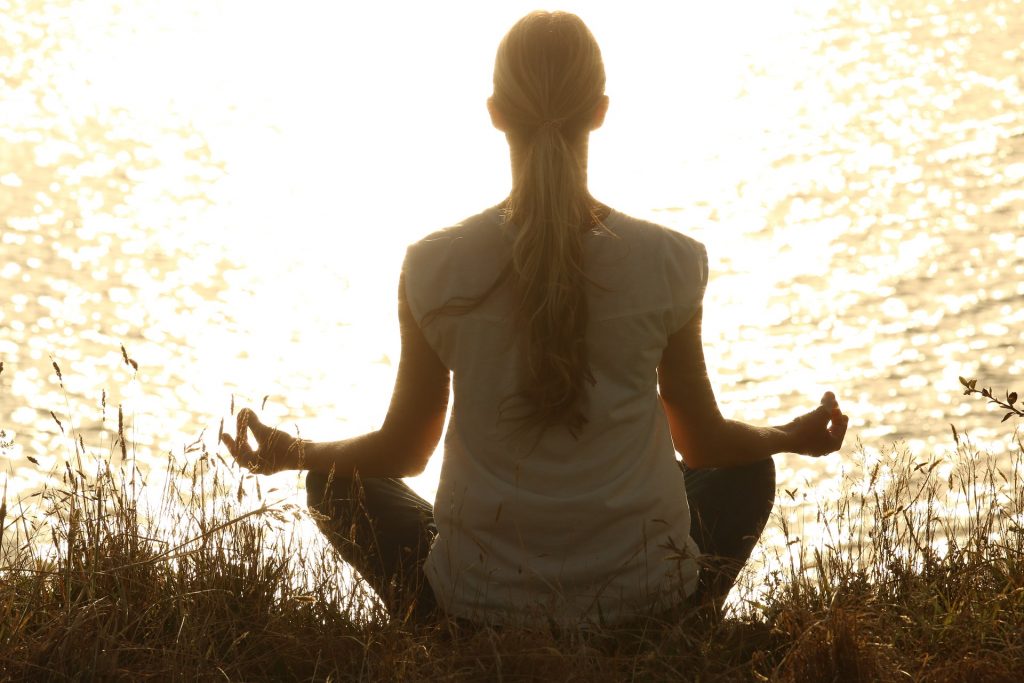How To Cope With Stress

Stress is a normal part of everyday life for the majority of people and although it doesn’t feel like it sometimes, having some stress can be healthy and motivating. But stress can become a problem when you can’t cope and it affects your emotional or physical health.
I ddarllen yr erthygl hon yn Gymraeg, clicia yma
Positive stress can give you that extra burst of adrenaline that helps you finish your coursework in time or finish a race in first place. Negative stress is when a situation or events put you under too much pressure, like moving schools, arguing parents, money worries or family illnesses. Even nice things like marriages, babies or holidays can cause negative stress. When negative stress happens, something needs to change.
Is stress a mental health problem?
It isn’t a diagnosed psychiatric condition, but medical professionals believe that stress can be the cause of mental health problems like anxiety or depression. Stress can also make these problems worse if people are struggling to cope. Mental health problems like anxiety, depression or borderline personality disorder can actually cause stress too: the pressure of taking medication, organising and attending medical appointments and so on.
How does stress affect us?
Stress can affect us both emotionally (our mind) and physically (our body). This can affect the way we behave, like finding it hard to make decisions, snapping at people, nail biting, eating too much or not enough and being tearful.
Emotional symptoms can include irritability, aggression, impatience, racing thoughts, an inability to switch off, a lack of humor, a feeling of neglect, loneliness and suicidal thoughts.
Physical symptoms can include shallow breathing, hyperventilating, panic attacks, muscle tension, tiredness, headaches, chest pain, tummy problems like constipation or diarrhoea, feeling sick and dizziness.
Why do some cope better than others?
Everyone is different. The amount of stress we feel in different situations depends on a lot of things:
How we see things – we have different past experiences and feel differently about ourselves. Some people are naturally more positive, some will have dealt with difficult situations already, and some are simply more resilient. Resilience can really help and is something that you can learn, find out more here
Other pressures – dealing with one stressful situation is bad enough, but if we have 2 or 3 different things causing stress then it can be harder to deal with
Support – If you’re not getting support from parents, friends, teachers etc. then that can cause extra stress. Having good support makes all the difference to how we cope
What can I do to cope with stress?
There are lots of things you can do to cope with being under too much stress. The first thing is to work out what’s causing the stress. Is it a build-up of little things that wouldn’t be a massive issue on it’s own? Is it just one thing (a situation or person) that’s the problem?
When you know what’s causing the stress then you can start thinking of how to change things. This isn’t always easy, and not always possible. If a person is causing you stress – keep away from them. If a situation in school is causing you stress, ask for help from friends, family, teachers. Everyone needs help sometimes.
Some situations are always going to cause a certain level of stress and that can be hard to avoid. The important thing is knowing how to deal with that stress, and finding ways to keep it manageable.
15 Top Tips To Reduce Stress
- Work/life balance – learn to say no if you’re being asked to do too much
- –<>–
- Spend time with people who make you feel happy
- –<>–
- Watch a film, listen to music, play a board game, get a colouring book
- –<>–
- Soak in the bath with a good book or magazine, scented candles and a fizzy bath bomb or sit in the garden with the sun on your face
- –<>–
- Take up a new hobby – learning something new can give you a different focus and stop you over-worrying
- –<>–
- Exercise – it’s a fab way of relieving stress – go to the gym, dance, football, yoga, run or walk – find a local Parkrun here.
- –<>–
- Ditch the gadgets for one night – sounds scary but avoid the stress of looking at other people’s ‘perfect’ lives online
- –<>–
- Sleep – a good night’s sleep makes a big difference – put the gadgets down at least half an hour before
- –<>–
- De-clutter – you’ll feel satisfaction, organised and in control
- –<>–
- A healthy, balanced diet – improve your health, look and feel better and be more confident
- –<>–
- Think positive – deciding to think positive can help – you’ll become used to seeing the positive in situations and will feel less stressed – Fake It Until You Make It!
- –<>–
- Laughter is the best medicine. – choose what you do wisely – Happy People, Happy Films, Happy Music, Happy Social Media etc.
- –<>–
- Breathe – learn some simple breathing techniques
- –<>–
- Mindfulness/meditation/yoga – these techniques really work for some – find ideas here
- –<>–
- Talk – tell people how you’re feeling – they might be able to help.
Despite trying all of these things, sometimes you will still feel stressed. Be kind to yourself. We’re all human and you have to do what you need to do to make you feel better. Sometimes a having a good cry, a big hug, or looking at cute puppy pictures can make thing seem a bit better. Sadly, there is no magic wand, but knowing what makes us stressed and knowing what we can do ourselves to manage our stress levels is very important. We hope that some of the ideas above will work for you.
Call Meic
If you need to talk to someone about a mental health issue, Meic can point you in the right direction to get the help you need. If there’s anything else worrying you (it doesn’t have to be a mental health issue) then call Meic to talk to a friendly advisor.
Meic is an information and advocacy helpline for children and young people aged 0-25 in Wales. We are open 8am to midnight, 7 days a week. You can contact us free on the phone (080880 23456), text message (84001) or online chat.





















